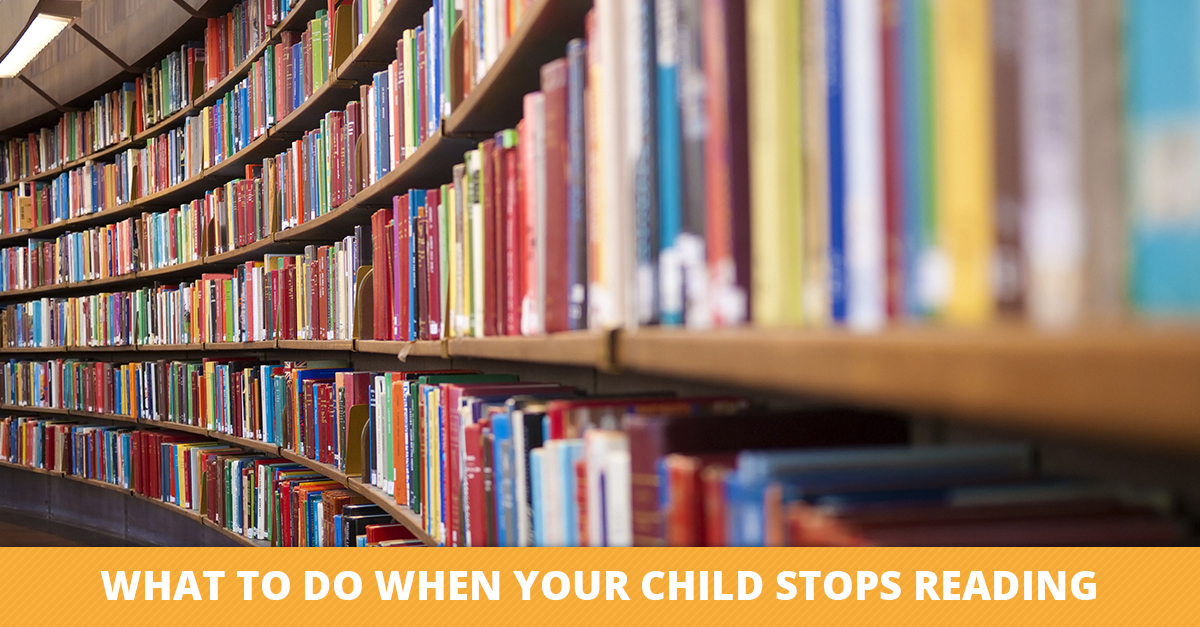What to Do When Your Child Stops Reading
Posted in Homeschool View on Thursday, October 3, 2013

Sometime around the third grade, some students abruptly decide that they don’t like reading anymore. Parents fret. Is it a learning disability? Why didn’t it show up earlier?
The problem can often be traced back to how a child learned to read. Since the Look Say method of phonics was introduced in the 1940s, teaching a child how to read has oscillated between a phonics-based method and sight reading, in which the child is shown a high frequency word, told the meaning, and made to memorize it.
For a student who learns using the Look Say method, Dolche or Frye lists are often used starting in the first weeks of kindergarten. The lists are dutifully reviewed, and as more sight words are learned, it can sound to parents as if their child is excelling in reading.
However, let’s fast-forward two years. You have a child who has had little instruction in how to break a word into pieces. He is unfamiliar with blends like “bl,” “tr,” and “br,” unless they are attached to a familiar Dolche word: blue, try, bring. Instead, the student has memorized roughly 100 words per year and now has a functional vocabulary of around 300 words. The trouble is full blown by third or fourth grade, when the student is no longer memorizing his high frequency words but is now expected to read independently. When the student runs into a word like “blink” or “trick,” he doesn’t know much about the “-nk” or the “-ck,” or even the blends that started those words. His mind fills in the “blue” or “try” instead, and he begins to stumble. This makes reading a frustration, and the student starts to resist reading.
Let’s look closely at the differences between these two sentences, which are both comprised largely of third grade high frequency words:
A. The little boy told us that he didn’t know where the little girl had gone. “She didn’t say much, but she said something about finding a whole lot of gold,” he said. “Maybe she’ll come back this way?” I asked. “No, I don’t think so. She was pretty sure she was on the right path.”
B. “The dog took various trips off the beaten path, sniffing here and there. There was so much to cause excitement! There were opportunities to scare some rabbits, bark at a flock of geese, and find a whole beehive. He had no luck in catching anything except the bees. He had lived in the city for too long, but he would improve.”
The student would stumble over many of the words in the second sample and be frustrated in no time at all. So much of the sentence is at his level, but the words that actually carry all the meaning are a mystery to him.
This high frequency method of reading lands many students in this same predicament. So, if you’re currently at a time when your child stops reading, what can you do?
The best solution is to go back and fix the problem where it started. The student doesn’t understand how English words are put together. A return to a phonics program like Horizons Phonics & Reading for grades K-3, even if it means going back several years behind his suggested grade level, would quickly catch him up on what he wasn’t taught before. Breaking words into their components and putting the sounds together properly will open the whole world of actually reading to the student.
Thankfully, homeschooling and a one-on-one setting with Mom or Dad will provide just what the student needs to build a foundation in reading and love it again.
What tips do you have for other homeschool parents who have a child who no longer enjoys reading?
Comments(1 comment)
Kathryn Schmitt 10/03/2013 13:47:22
The article makes a very good point. It takes a blend of approaches to teach children. Depending on only one approach to teaching a subject will leave gaps in their thought processes and lead to later confusion. This is true in all subjects.
A point I would like to add is the possibility of Dyslexia. If the parent goes back and works on phonics and their child is still struggling and frustrated, the child may be Dyslexic. Phonics doesn't work on a Dyslexic brain. Sounds and symbols don't go together for these children. My son learned to become a very successful reader using a process called "decoding". He studied the actual structure and patterns in the words with a reading specialist for 2 years. He still struggles with writing and spelling, but his reading comprehension is very high.